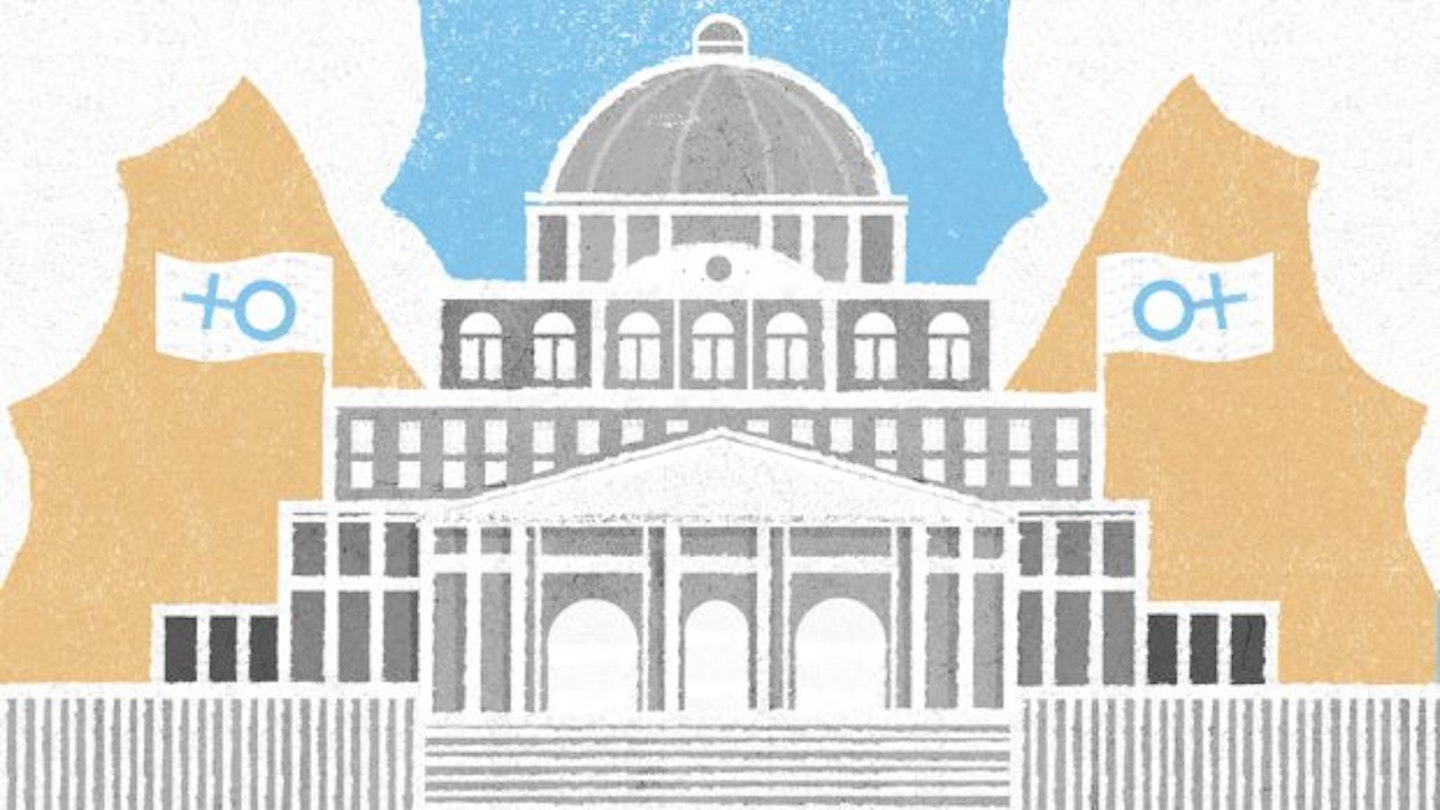It’s pretty easy to despair about how well women are represented in parliaments all over the globe. Yesterday, for example, it was announced that eight women have been appointed ministers in Italy's new government. Instead of hailing the appointments as a massive breakthrough in gender equality, the Italian press have criticised the women for not wearing the ‘right’ clothes. Because a women’s dowdiness is obviously directly proportional to her ability to do her job – everyone knows that.
The UK doesn’t fare much better. In the past couple of weeks, a lot has been made of the representation – or the lack thereof – of women in parliament. First, there was Cameron’s embarrassing ‘in, out, shake it all about’ approach to women on the front bench – Ed Miliband criticised the PM for running an old boy’s club on the front bench, so he responded by packing it full of female MPs at the next Prime Minister's Question Time. Not transparent at all. Meanwhil, UKIP leader Nigel Farage told the BBC’s Woman’s Hour that his party now has so many women that some people are saying they’re ‘about to take UKIP over!’ and that ‘Nobody has done more to promote women in UKIP than I have!’ This from the man who once said that City women who take maternity leave are worth less than men.
But before we all pack our bags buy the next available ticket outahere, has anyone actually considered where we should be going? Which country has the least sexist parliament?
It’s not a terrible idea to start by seeing which country has the most women in parliament. ‘Looking at the figures, Rwanda is the least sexist parliament in the world,’ explains Cathy Newman, presenter for Channel 4 News. ‘In fact, it really feels like some African countries are blazing a trail on this. Rwanda's parliament is now almost two-thirds female, and Malawi, Liberia and Senegal have women in the top jobs. The West needs to learn from Africa. And that applies particularly to the UK, which is 59th in the parliamentary league table, behind countries like Iraq and Kazakhstan.’
But don’t start packing your bags just yet because when it comes to how much autonomy women actually have in position of power in parliament, the numbers can be very deceiving. ‘This is a hugely complicated issue that can’t be addressed by simply studying the numbers,’ explains Laura Shepherd, editor of Gender Matters in Global Politics: A Feminist Introduction to International Relations. ‘Yes, it’s important to have at least 50 per cent women in parliament because women make up at least half of the population and, if our politicians in liberal democratic states are supposed to represent 'us' as a population, there should be equal numbers of men and women. However, we need to think about representation in a different sense: do 'we' (as women in society) expect other women to represent our views and interests just because they are women? We shouldn't assume that only men behave in sexist ways – for example, I can tell you that Margaret Thatcher certainly didn't represent me when she was in office.’ Cathy agrees. ‘Let’s not delude ourselves: women's rights in many African countries lag far behind our own. You only have to look at the appalling incidence of rape to know that. So while their parliamentary systems may be more enlightened, in society more broadly there are big problems to confront.’
So it seems like we can’t assume that a country’s parliament is the least sexist just by looking at the numbers, what seems to be more important is how those numbers translate to actual power. ‘How many women are appointed to the cabinet? What kind of jobs are they given in the cabinet? And how seriously are women taken in parliament? These are the questions that we need to be asking about how well women are represented in a country's political institution,’ explains Cathy.
When it comes to the power to actually effect policy, it looks like the Scandi nations are hard to beat. ‘The Nordic countries as a group have by far the greatest proportion of women in positions of political power,’ explains Laura. ‘If you look at the information available about seats held by women in Single/Lower Houses, the Nordic countries show an average of 42.1%, with the next closest being the Americas, where only 25% of seats in similar institutions are held by women. That's a gap of over 15%. We can reasonably assume that the Nordic countries as a group give women better representation, in both senses of the term.’
But all the political pulling power in the world is useless if day-to-day working culture of a parliament is institutionally sexist. Again, it looks the UK has been lagging behind in this department for a long time. ‘Sarah Teather, a former minister, has said the atmosphere in there is "like a public school full of teenage boys",’ explains Cathy. ‘The ex Labour MP Barbara Follett, complained that Tory backbenchers used to cup their hands under pretend breasts and mouth "melons" whenever she got up to speak. Women in the UK’s parliament might have power – but what do anecdotes like that tell you about the culture?’ But before we all become nihilists, there does seem to be hope for us yet. ‘An image of women in politics that always makes me smile is the picture of the Italian Member of the European Parliament Licia Ronzulli,’ says Laura. ‘She’s often shown in session with her daughter in a sling or on her lap. I mean, that says good things about the culture of the European Parliament.’
So unless you’re planning on becoming a member of the EP, it looks like one of the Nordic countries might still be our best bet. And we'd expect nothing less from the country that produced powerhouse sasspot Sarah Lund.
**Follow Sophie on Twitter @sophiecullinane **
This article originally appeared on The Debrief.
